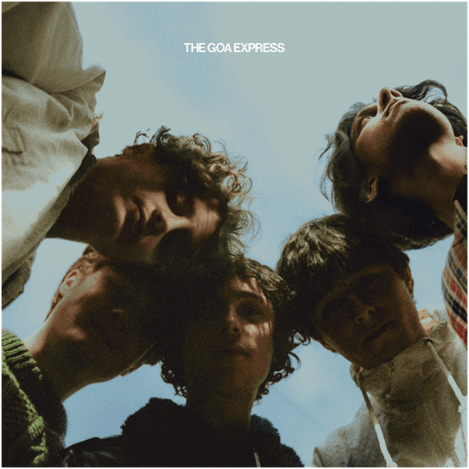The Goa Express deliver a frantic yet refreshing debut
"The Goa Express"

The Goa Express have taken a steady approach to their creativeness.
With their self titled debut album coming over four years after the band’s first release, its proceeding releases have flirted with various genres including indie pop, psych pop and indie rock. so the announcement of an album was greeted with anticipation and wonder. What’s delivered is a youthful and expressive alternative to the current indie rock scene.
The record seems to make active attempts to revive the indie sounds of the 1990s and the early noughties. Sharp yet infectious guitars hold the record up, often evoking bands like The Libertines and The La’s with their overtly English charm. Guitar effects often drench the album’s sound, furthering the nostalgic atmosphere.
Similar to the aforementioned bands, and in juxtaposition to The Goa Express’s slow and steady rise, the album comes with a clear franticness. Many songs fly out of the starting blocks as if there’s not enough time to play them. The record’s opener, “Honey” sets this tone, and crashes around with whirling drums and guitars, showcasing the band’s knack for creating songs that demand attention.
Some songs do sometimes feel a little let down by poor vocal performances, which are off centre from time to time and, while this does aid in creating the raw atmosphere present on the album, songs like “Can’t Stay Quiet” seem to be held back from being stand out numbers. The rawness does generally work well though, especially on “Good Luck Charm” which, with its chaotic and layered bite, instils the album’s urgency and intent to make an impact. Nowhere is this more prevalent though, than on “portrait” – a sub-two-and-a-half-minute blast of adrenaline complete with jagged instrumentation and chanted choruses that put it in somewhere between the Libertines and The Strokes.
The record is as nostalgically reflective lyrically as it is musically, with many songs seeing lead singer, James Douglas Clarke, looking back on times gone by. “Portrait” – the album’s first single – reflects on the contentment of a relationship, while “Talking About Stuff” nods to the power of the band’s friendship, doing so amid sharp, shimmering melodies.
Elsewhere we see Douglas Clarke yearning for escape; further embedding the record’s youthful tone. “Small Talk” laments and reflects on the need for blocking the world out amid a festival burnout, while “Good Luck Charm” centres around dreams of chasing the horizon.
Despite the album’s clamour, the band do come up for air at points. Tracks like the slow burning “It’s Better Than Ever” and on the album’s closer, “Prove It” show a more naked side to the band's pensiveness. The latter reflecting on the need to accept things coming to end, and doing so amid gentle and understated guitars before soaring into a synth drenched dream to send the album home. No doubt the perfect closer for a record that, despite doing and achieving so much, must, alas, come to an end.
Get the Best Fit take on the week in music direct to your inbox every Friday

Great Grandpa
Patience, Moonbeam

Deafheaven
Lonely People With Power

Perfume Genius
Glory





